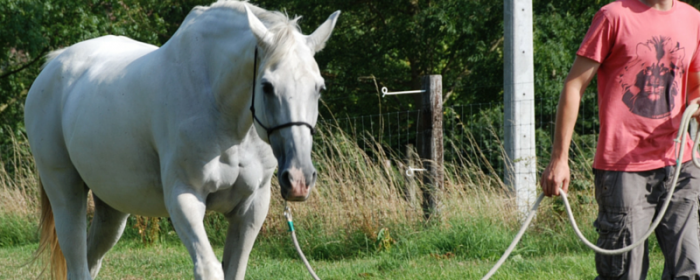
Investigating horse-human interactions and nervousness
Equitation science focuses on the effects of intentional signals, however, little research is done on the unintentional signals that may be given. This is also an important topic considering fearful reactions in horses can cause accidents, and unintentional signals may change the risks involved.
This study investigated the heart rate of horses (n=27) and the people leading (n=20) or riding (17) them. The study took place in a familiar indoor arena where participants walked four times from point A to point B which was 30 meters further. Just before the fourth trial, the participant was told that the observer would now open the umbrella they were holding. No further information was given, but the umbrella was not opened so this trial was just as the ones before.
However, the results show that the heart rate in both horse and human decreased from trial one to trial three, and significantly increased in the last trial where the human expected an umbrella to be opened. No significant behavioural differences were observed in the horses or people leading the horse in the last trial, although riders had slightly shorter reins in the last trial. The increase in heart rate in the horses probably means that they were more alert and ready to react to any potential danger.
Expert opinion by Els Smet
This article shows that nervous riders can unconsciously make the horse more alert, and thus that a nervous person leading or riding a horse may increase the likelihood of the startle reaction that they are trying to avoid. Therefore it is very important to try to be aware of what signals you are giving the horse.
> From: Keeling et al., The Vet Journal 181 (2009) 70-71. All rights reserved to Elsevier. Click here for the online summary.


